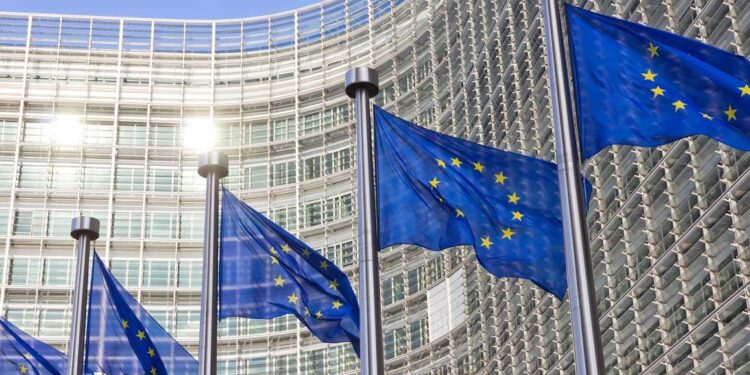The European Union is intensifying its efforts to curb reliance on Russian energy, signaling a firmer stance amidst geopolitical tensions. However, this push faces challenges as former U.S. President Donald Trump remains absent from the dialogue, and Hungarian Prime Minister Viktor Orbán continues to withhold support. As Brussels seeks to unite its member states behind tougher measures, the discord threatens to complicate the bloc’s strategy to reduce energy dependence on Moscow.
EU Strengthens Energy Sanctions Against Russia Amid Diverging Member States
The European Union has escalated its sanctions targeting Russia’s energy sector, signaling a firmer stance amid a complex landscape of internal dissent. This new phase of restrictive measures focuses primarily on curbing imports of Russian oil and gas, aiming to cut off critical revenue streams fueling Moscow’s military operations. However, the path to consensus has been far from smooth, as several member states express reservations tied to their unique economic dependencies and geopolitical considerations. The EU’s leadership is now navigating a delicate balancing act, managing solidarity while respecting national concerns.
Key dynamics shaping the new sanctions framework include:
- Hungary’s reluctance: Prime Minister Viktor Orbán’s resistance underscores the challenge of aligning energy policies in a bloc with diverse interests.
- US influence absent: Unlike previous sanction rounds influenced by former US President Trump’s unpredictable stance, the EU’s current strategy operates with more internal cohesion despite differences.
- Energy security considerations: Several Eastern European countries emphasize the need to avoid abrupt supply disruptions that could destabilize their economies.
| Aspect | Current EU Position | Member State Concerns |
|---|---|---|
| Oil Embargo | Phased, with exceptions | Hungary & Slovakia request exemptions |
| Gas Imports | Pressure to reduce dependency | Eastern Bloc seeks gradual transition |
| Energy Alternatives | Increased investment in renewables | Short-term supply concerns persist |
Hungary’s Resistance Challenges Unified EU Energy Strategy
Hungary’s firm stance continues to create ripples across the European Union, as Budapest resists measures aimed at curbing reliance on Russian energy supplies. Prime Minister Viktor Orbán’s government insists that any moves toward stricter sanctions or energy restrictions must consider the country’s heavy dependence on Russian gas, which it deems vital for economic stability. This posture stands in stark contrast to other member states pushing for a swift and unified energy strategy to reduce Moscow’s leverage. The Hungarian position complicates efforts to present a united front, slowing down EU-wide initiatives designed to diversify energy sources and accelerate green transitions.
Within the EU, discussions have crystallized into a cautious balancing act. Some member states advocate for immediate sanctions and accelerated investments in renewables, while Hungary’s resistance underscores the persistent fault lines in Europe’s collective energy policy. The following key challenges illustrate the discord:
- Energy security vs. political unity: Hungary prioritizes supply reliability over symbolic displays of solidarity.
- Economic impact concerns: Budapest warns of possible industrial slowdowns and rising costs without Russian gas.
- Regional influence: Orbán’s defiance tests Brussels’ ability to enforce cohesive energy policies.
| Country | Russian Gas Dependency | Support for EU Strategy |
|---|---|---|
| Hungary | ~80% | Reluctant |
| Germany | ~55% | Conditional |
| Poland | ~30% | Strongly Supportive |
Policy Recommendations for Enhancing EU Energy Security and Cohesion
To fortify Europe’s resilience against external energy pressures, policymakers must prioritize a multifaceted approach that balances diversification, investment, and strategic autonomy. This includes accelerating diversification of energy imports beyond Russia by expanding LNG terminals, enhancing interconnections between member states, and aggressively investing in renewables and green hydrogen projects. Strengthening the energy market’s integration is crucial to prevent fragmented national responses that weaken the collective bargaining power of the EU.
Moreover, fostering deeper solidarity among member states will require binding commitments supported by transparent monitoring and enforcement mechanisms. Key recommendations center on:
- Enhancing the European Energy Union framework to ensure cross-border energy infrastructure projects receive faster approvals and funding.
- Implementing EU-wide strategic gas reserves to mitigate supply disruptions during geopolitical conflicts.
- Launching targeted financial incentives for countries lagging in renewable adoption, ensuring cohesive progress across the bloc.
| Policy Area | Recommendation | Expected Impact | ||
|---|---|---|---|---|
| Energy Diversification | Expand LNG infrastructure & renewable capacity | Reduce dependency on single suppliers | ||
| Market Integration | Streamline cross-border projects approval | Enhance energy flow & price stability | ||
| Strategic Reserves | Create EU-wide gas storage capacity | Strategic Reserves | Create EU-wide gas storage capacity | Mitigate supply disruptions during crises |
Let me know if you want help with further edits or summaries!
The Conclusion
As the European Union moves forward with a firmer stance on Russian energy dependence, the absence of key figures like former U.S. President Donald Trump and Hungarian Prime Minister Viktor Orbán signals both challenges and shifts within the broader geopolitical landscape. While Brussels seeks to present a united front, lingering divergences among member states underscore the complexity of achieving consensus on energy security and sanctions policy. The coming months will be critical in determining whether the EU can maintain cohesion and resilience amid ongoing pressures from Moscow and evolving international dynamics.
















